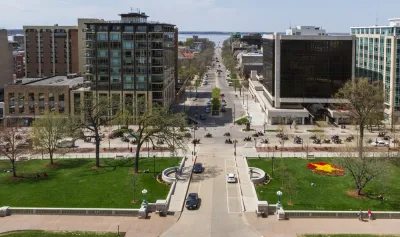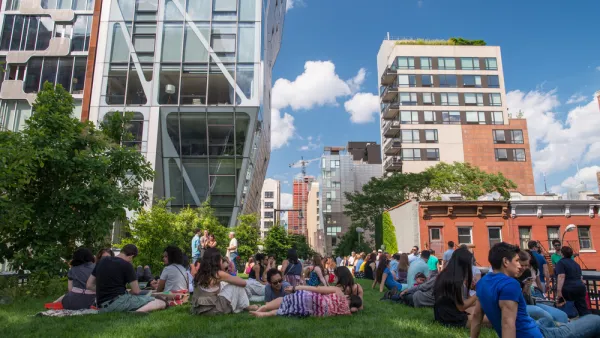A few regions have hoarded the growth of the tech innovation economy. A Brookings paper argues that Congress can help distribute tech innovation in growth centers around the Heartland of the United States.

A Brookings study bases recommendations for a federal program for tech industry growth on the data that shows just five metropolitan areas—Boston, San Francisco, San Jose, Seattle, and San Diego—"accounted for more than 90% of the nation’s innovation-sector growth during the years 2005 to 2017."
"The future of America’s economy lies in its high-tech innovation sector, but it is now clear that same sector is widening the nation’s regional divides," according to a Brookings article by Robert D. Atkinson, Mark Muro, and Jacob Whilton.
"Based on 'winner-take-most' network economies, the innovation sector has generated significant technology gains and wealth but has also helped spawn a growing gap between the nation’s dynamic 'superstar' metropolitan areas and most everywhere else," according to the article, to follow up on the point about widening divides.
So how does the trio suggest that tech innovation centers can be rolled out across the United States to the benefit of more people and places? Think of a New New Deal, of sorts: "Specifically, the nation needs—as one initiative among others—a massive federal effort to transform a short list of 'heartland' metro areas into self-sustaining 'growth centers' that will benefit entire regions."
The article is written to promote a new paper that proposes additional, specific actions to further that purpose. The article linked here includes more detail and data on the challenges facing the uneven integration of the tech sector into the fabric of communities around the country.
For instance, place-based interventions will be essential to achieve a more equal region distribution of tech industry growth. This challenge can't be left to the market alone, according to the article.
A separate article by Cat Zakrewski provides commentary and analysis of the Brookings pitch for growth centers.
FULL STORY: The case for growth centers: How to spread tech innovation across America

Analysis: Cybertruck Fatality Rate Far Exceeds That of Ford Pinto
The Tesla Cybertruck was recalled seven times last year.

National Parks Layoffs Will Cause Communities to Lose Billions
Thousands of essential park workers were laid off this week, just before the busy spring break season.

Retro-silient?: America’s First “Eco-burb,” The Woodlands Turns 50
A master-planned community north of Houston offers lessons on green infrastructure and resilient design, but falls short of its founder’s lofty affordability and walkability goals.

Test News Post 1
This is a summary

Analysis: Cybertruck Fatality Rate Far Exceeds That of Ford Pinto
The Tesla Cybertruck was recalled seven times last year.

Test News Headline 46
Test for the image on the front page.
Urban Design for Planners 1: Software Tools
This six-course series explores essential urban design concepts using open source software and equips planners with the tools they need to participate fully in the urban design process.
Planning for Universal Design
Learn the tools for implementing Universal Design in planning regulations.
EMC Planning Group, Inc.
Planetizen
Planetizen
Mpact (formerly Rail~Volution)
Great Falls Development Authority, Inc.
HUDs Office of Policy Development and Research
NYU Wagner Graduate School of Public Service




























